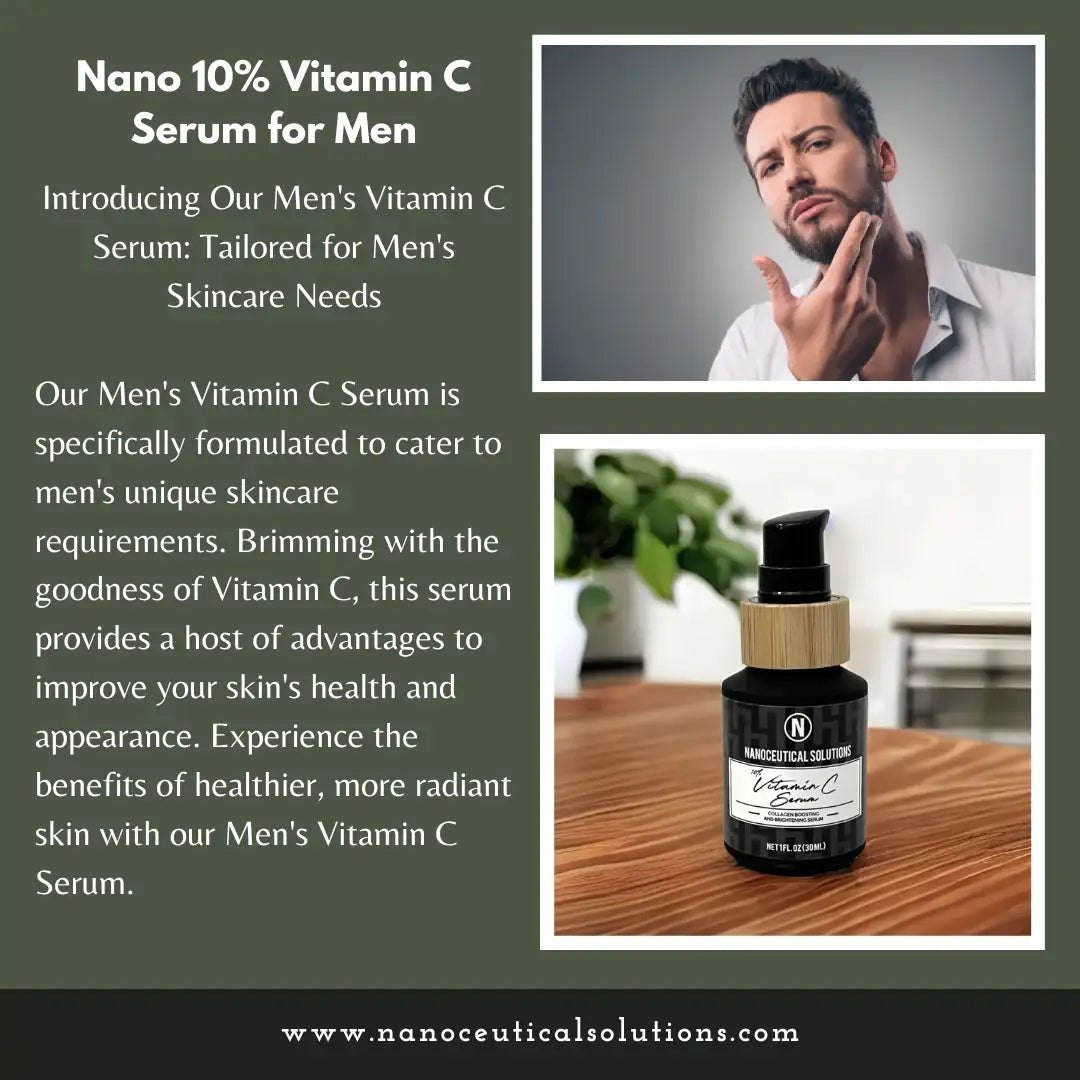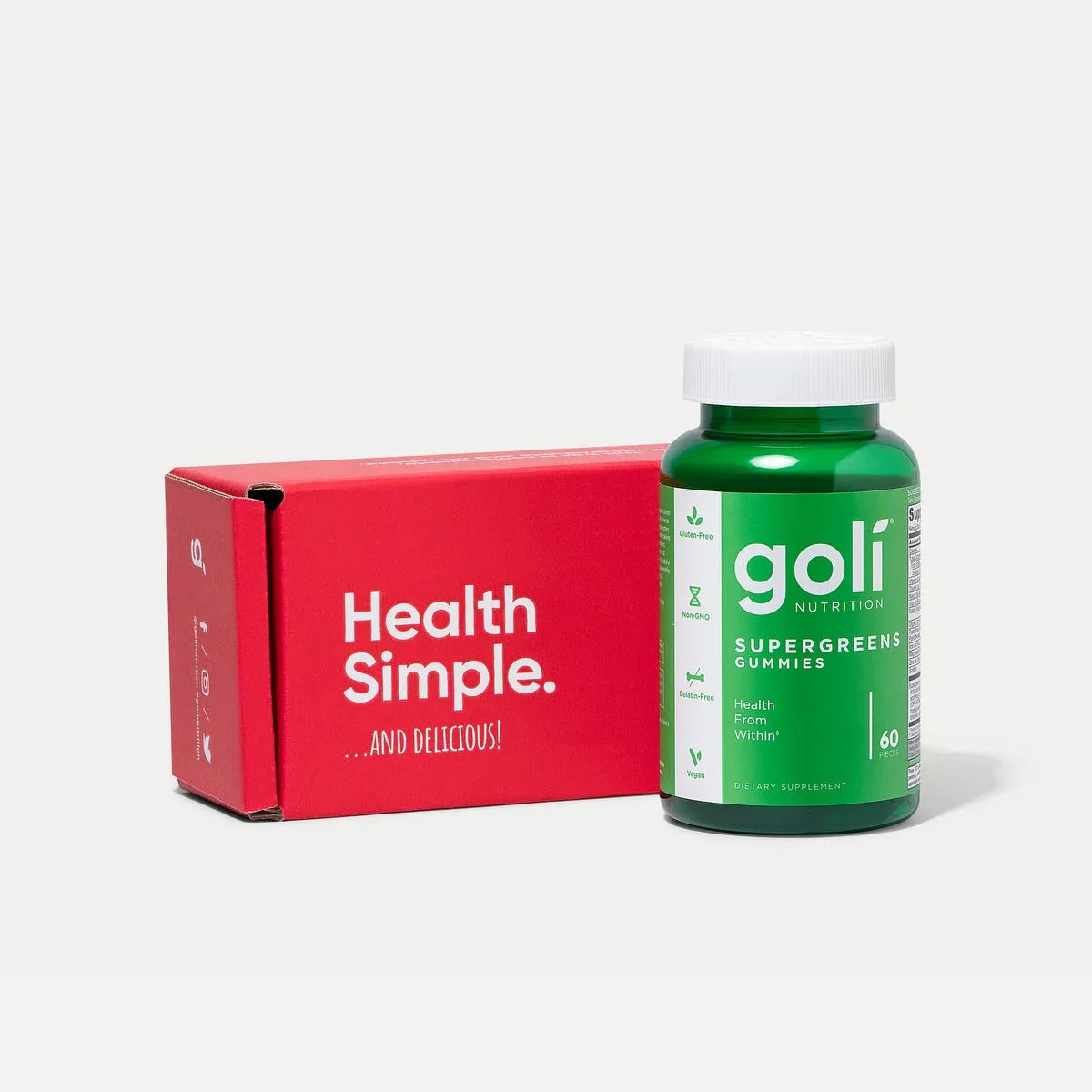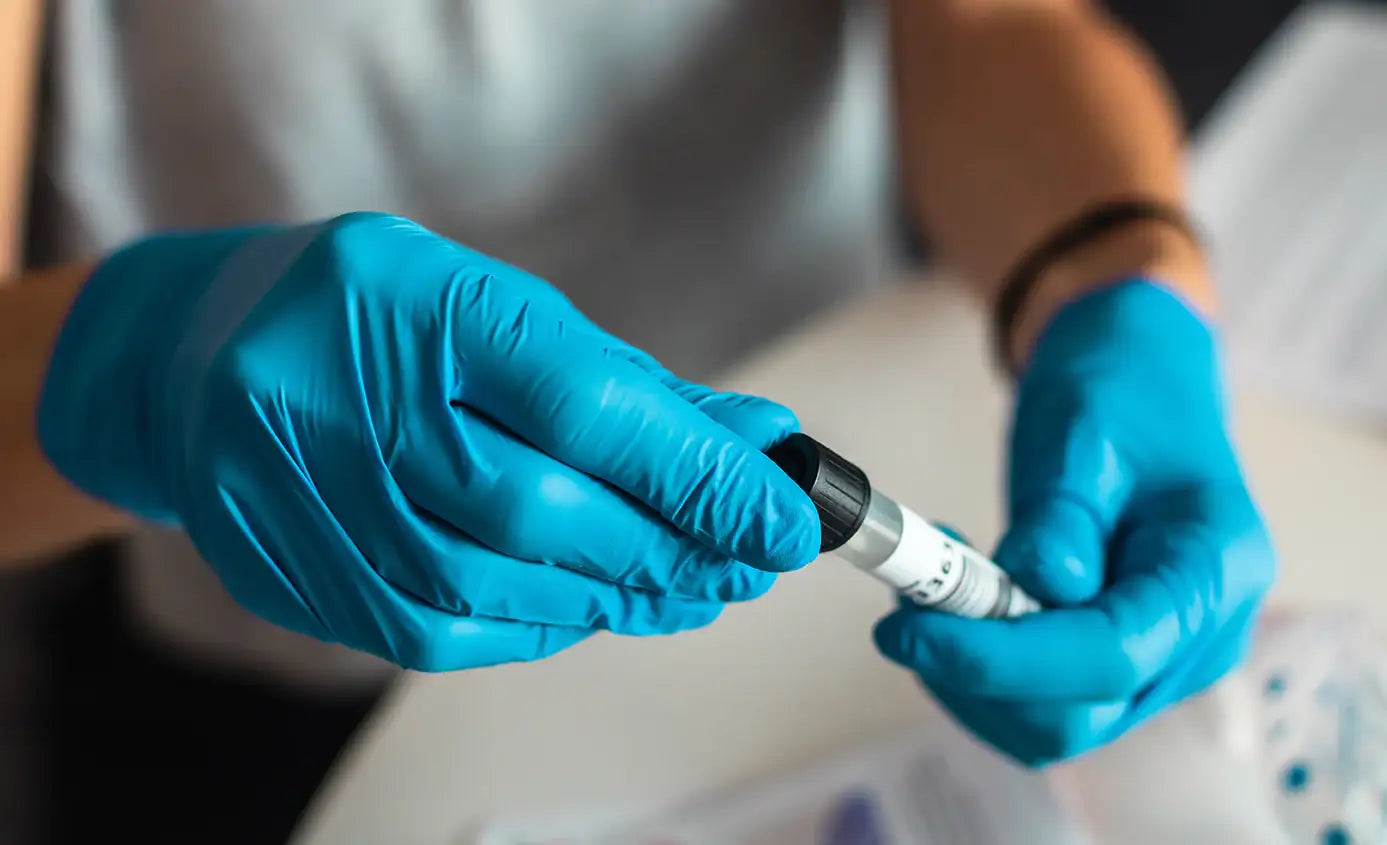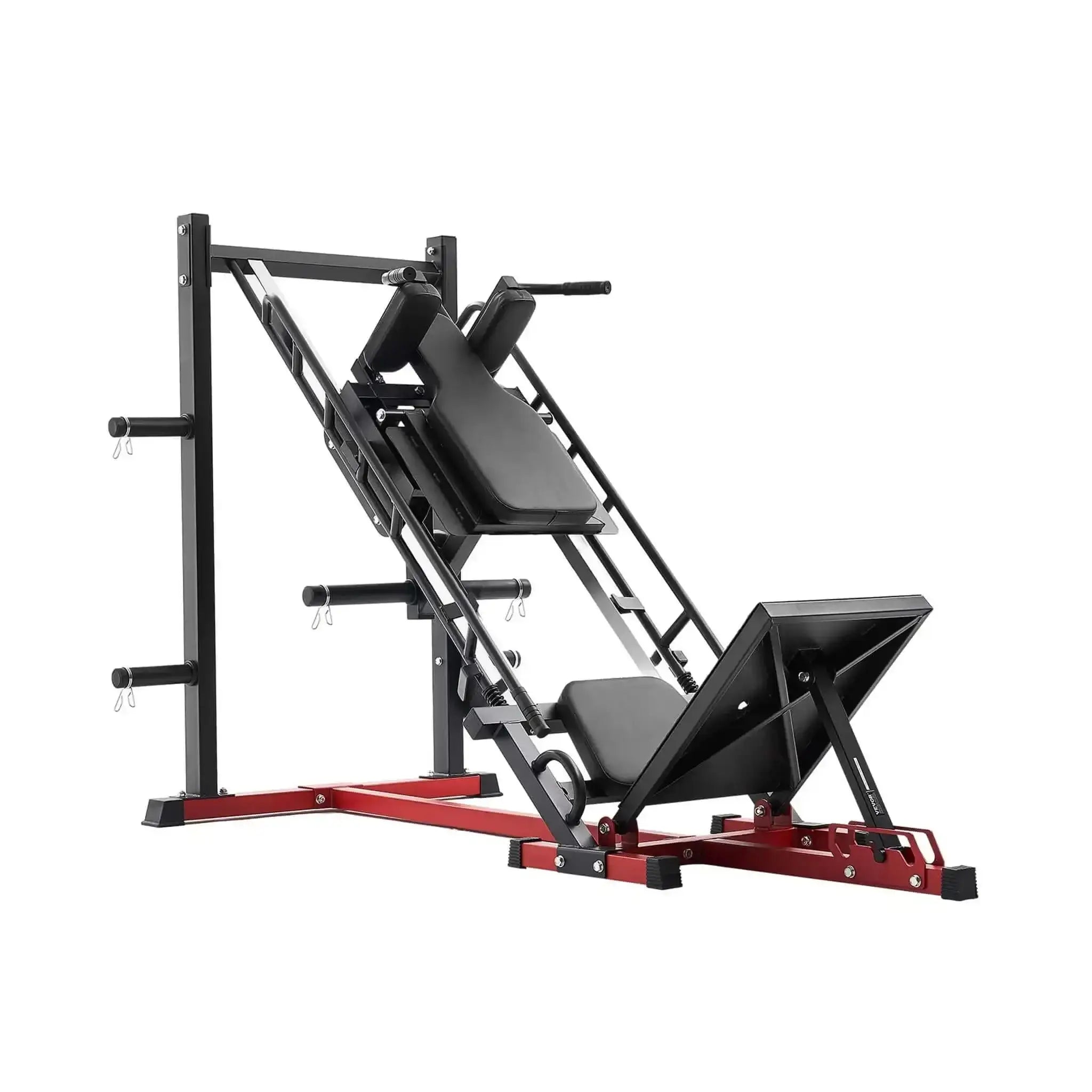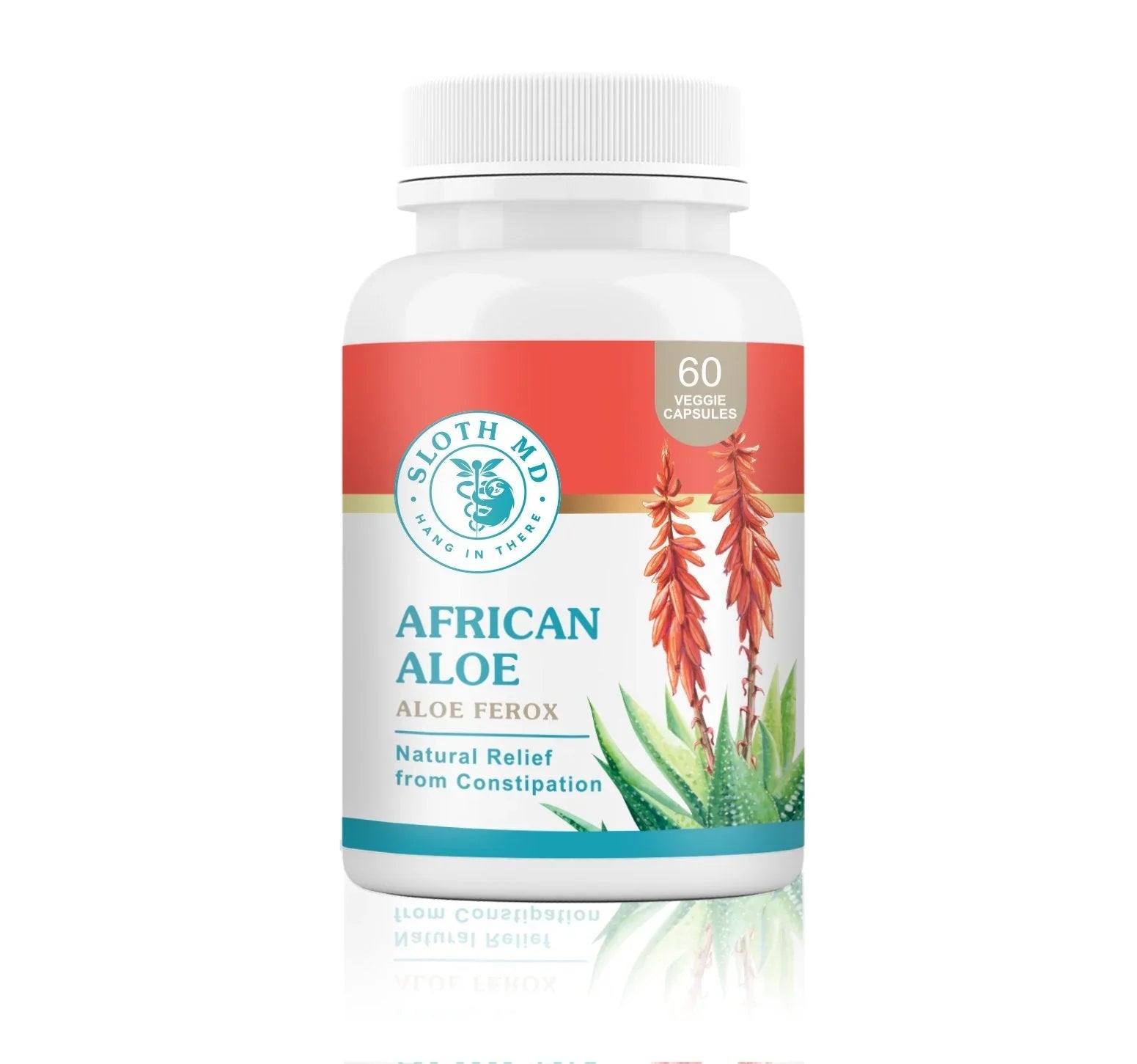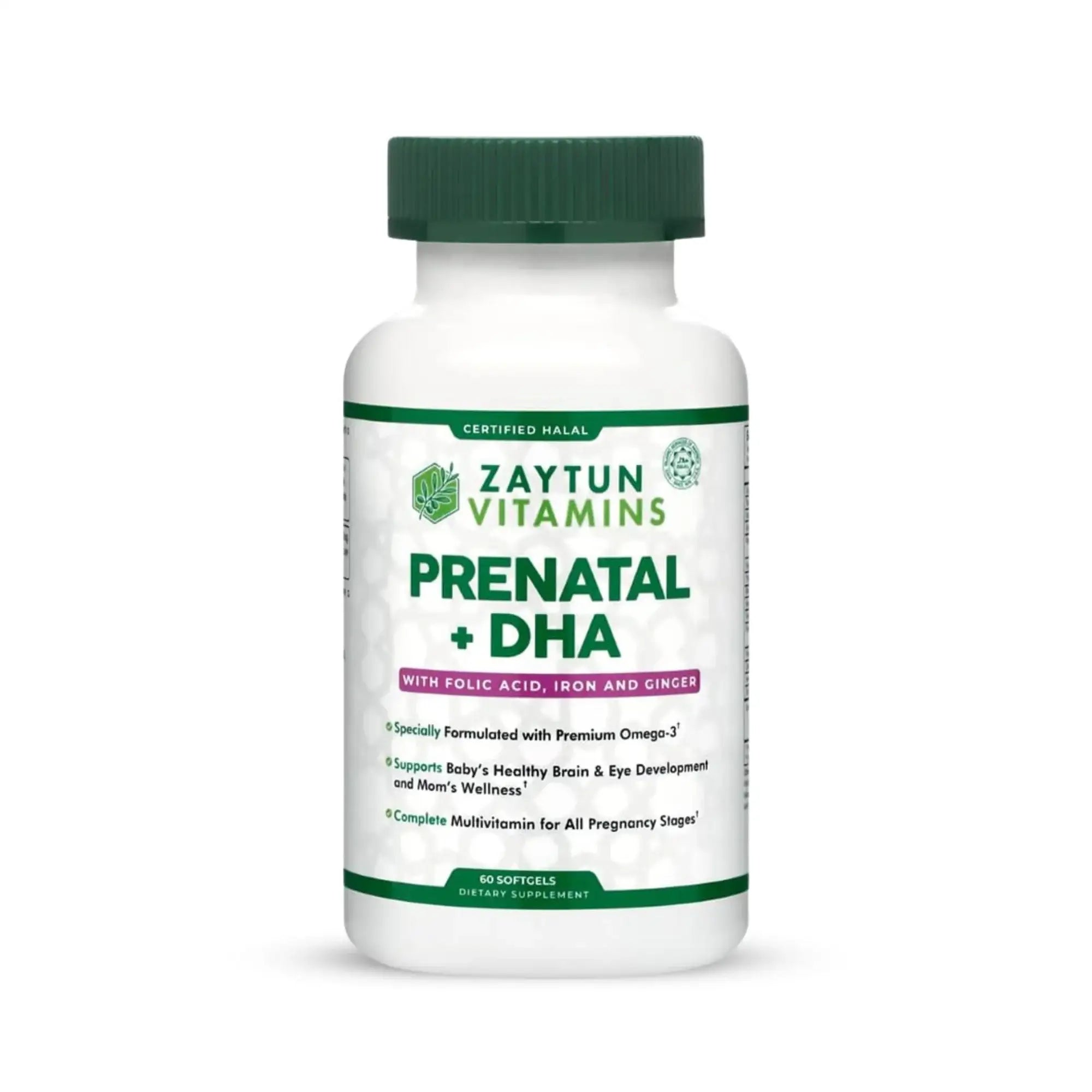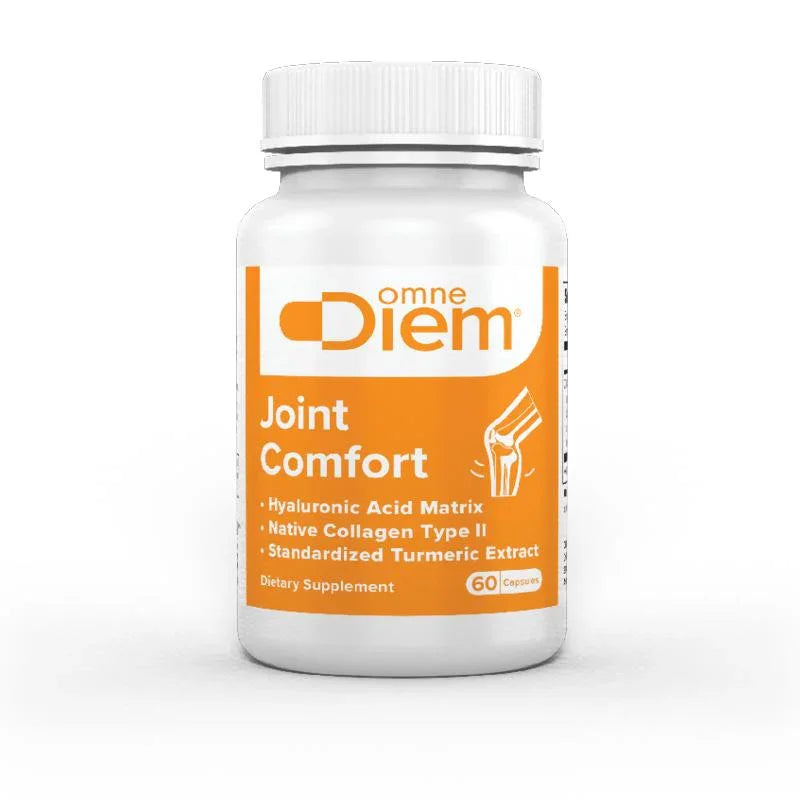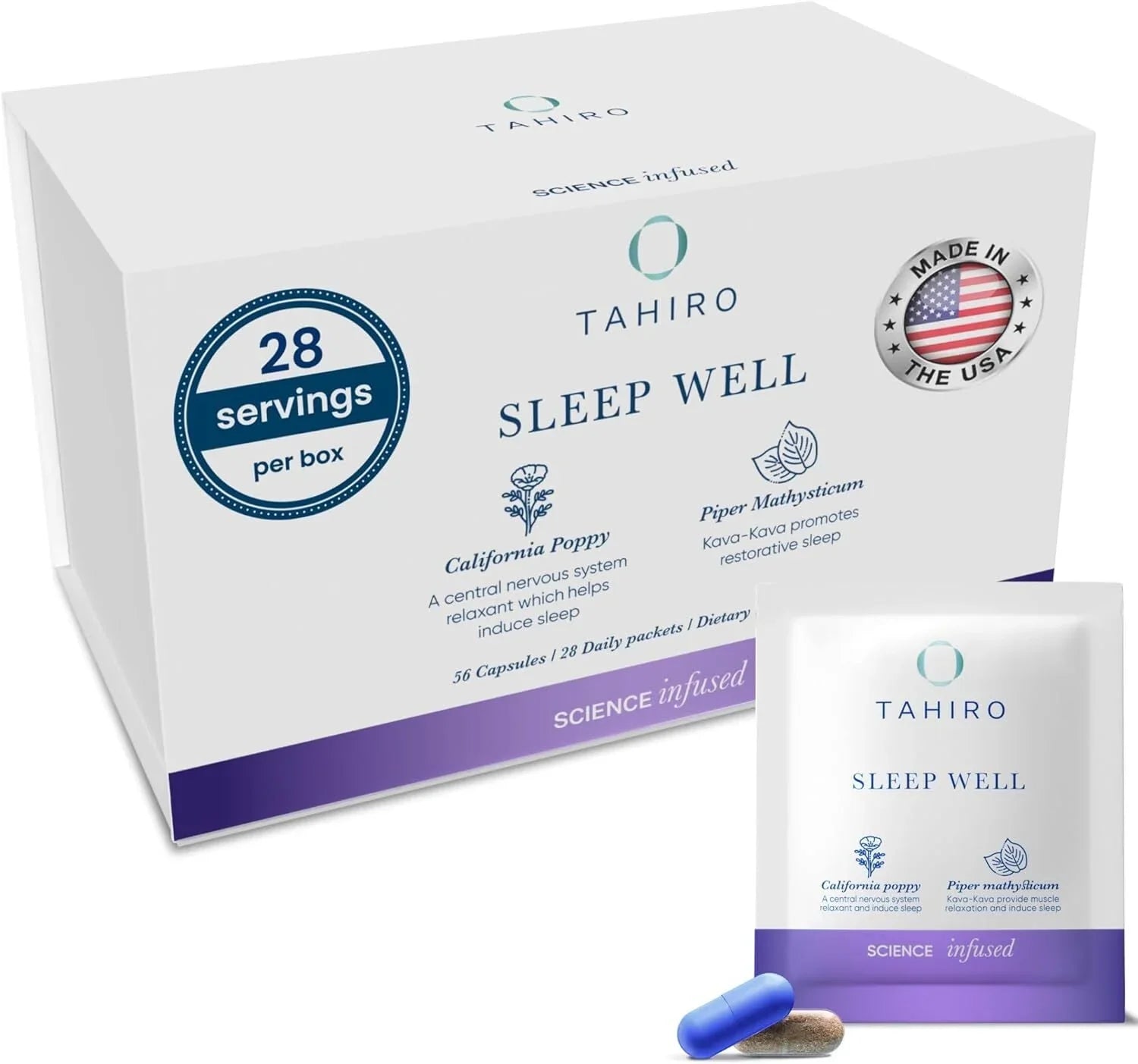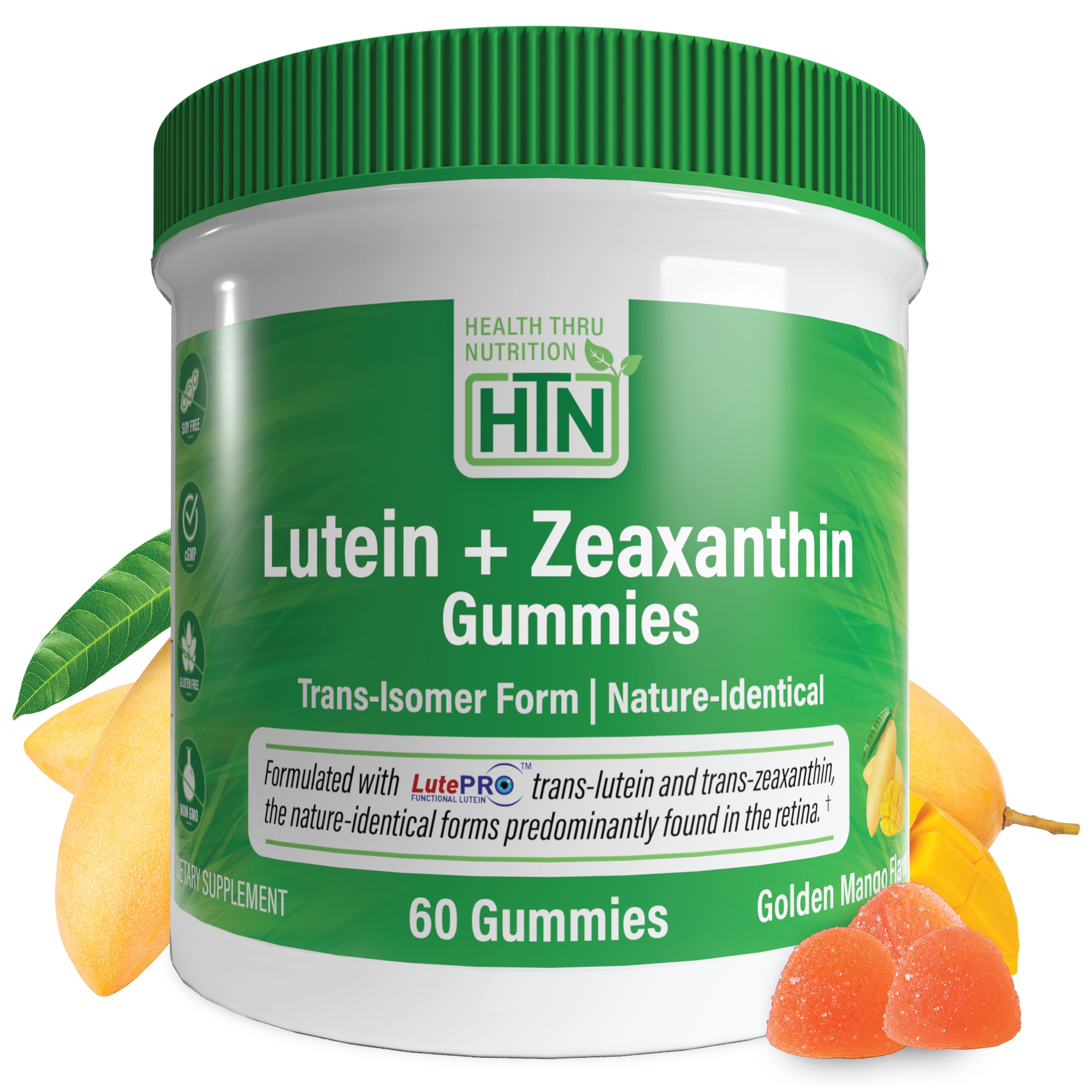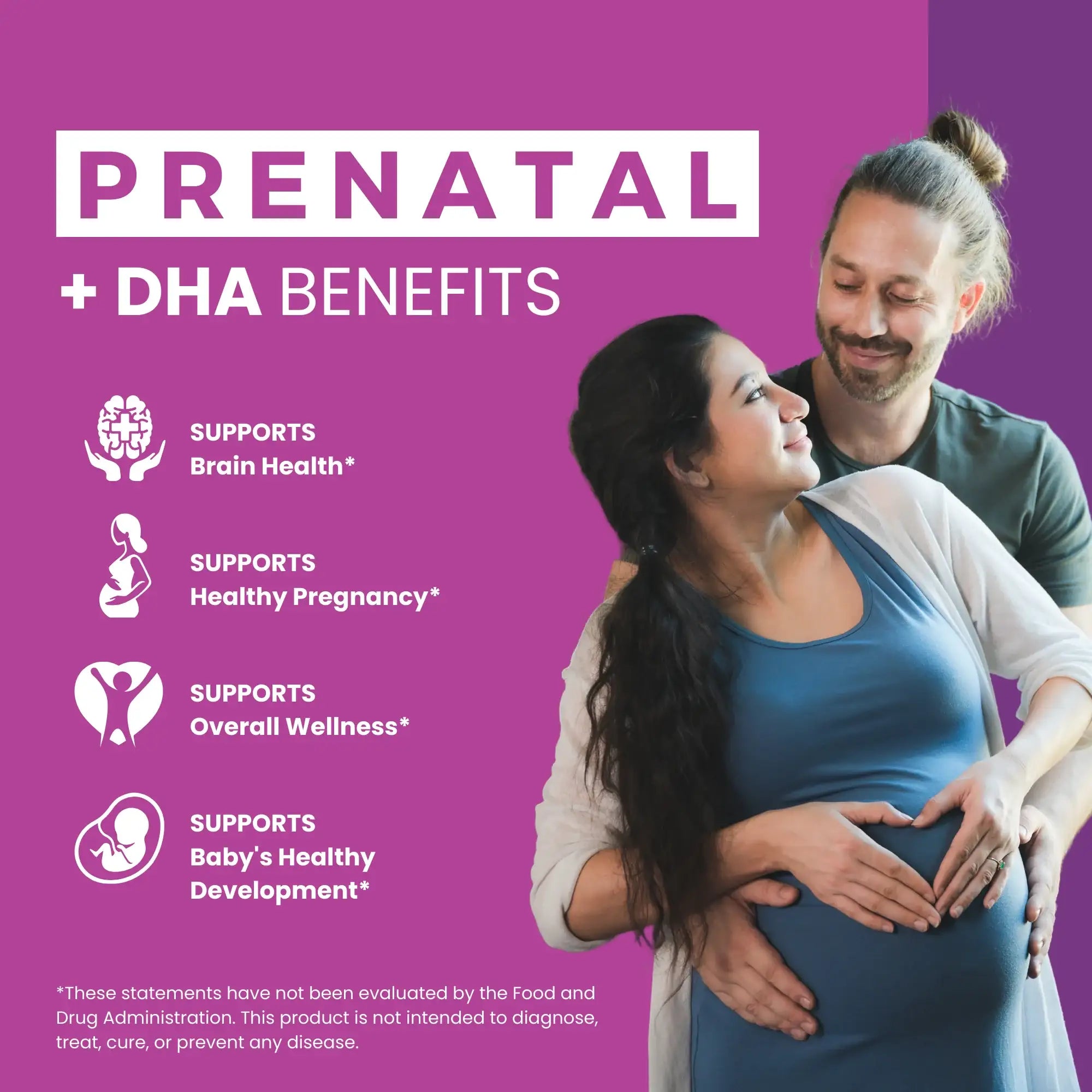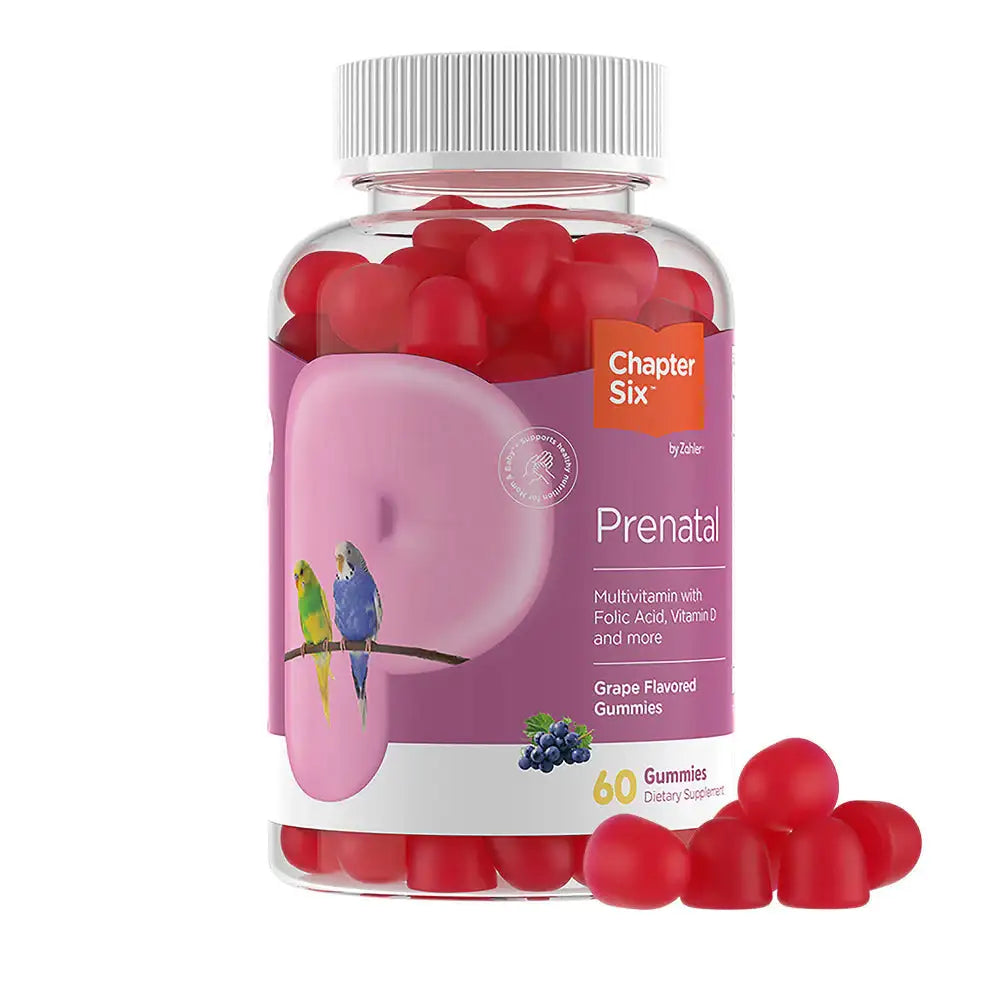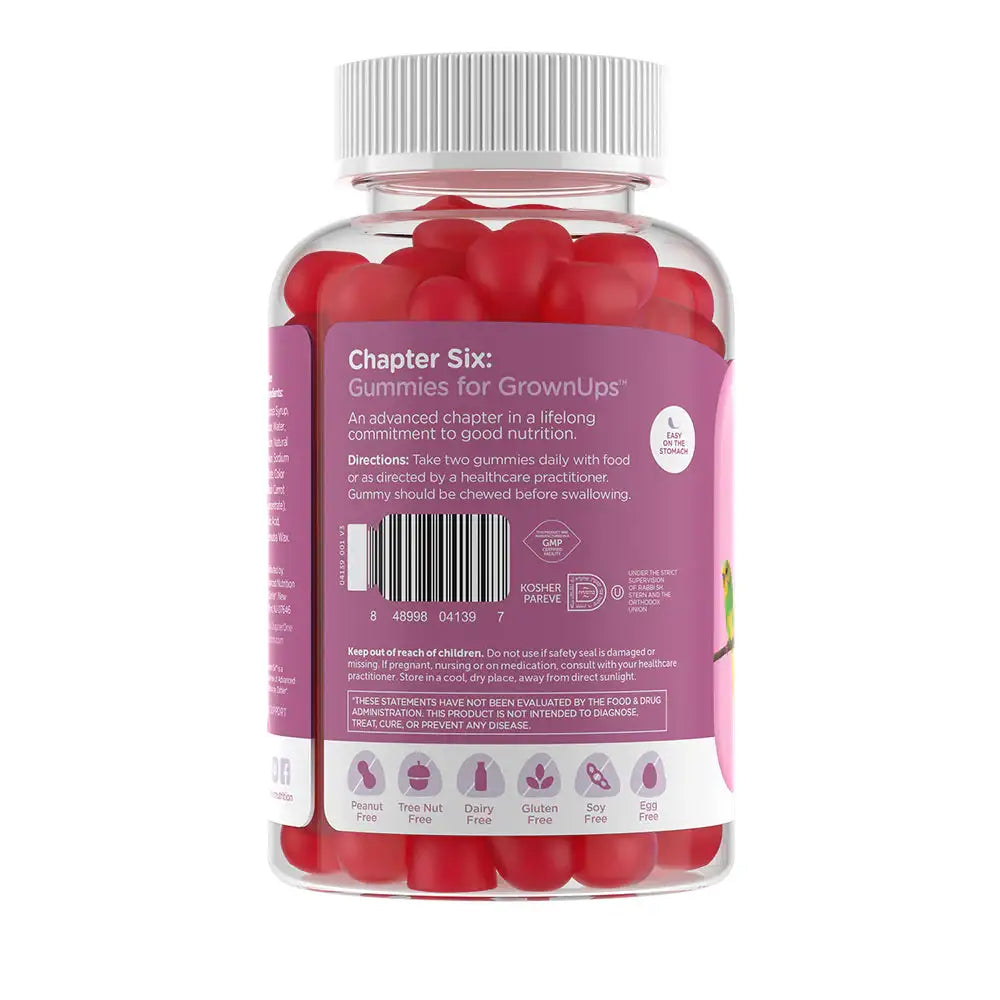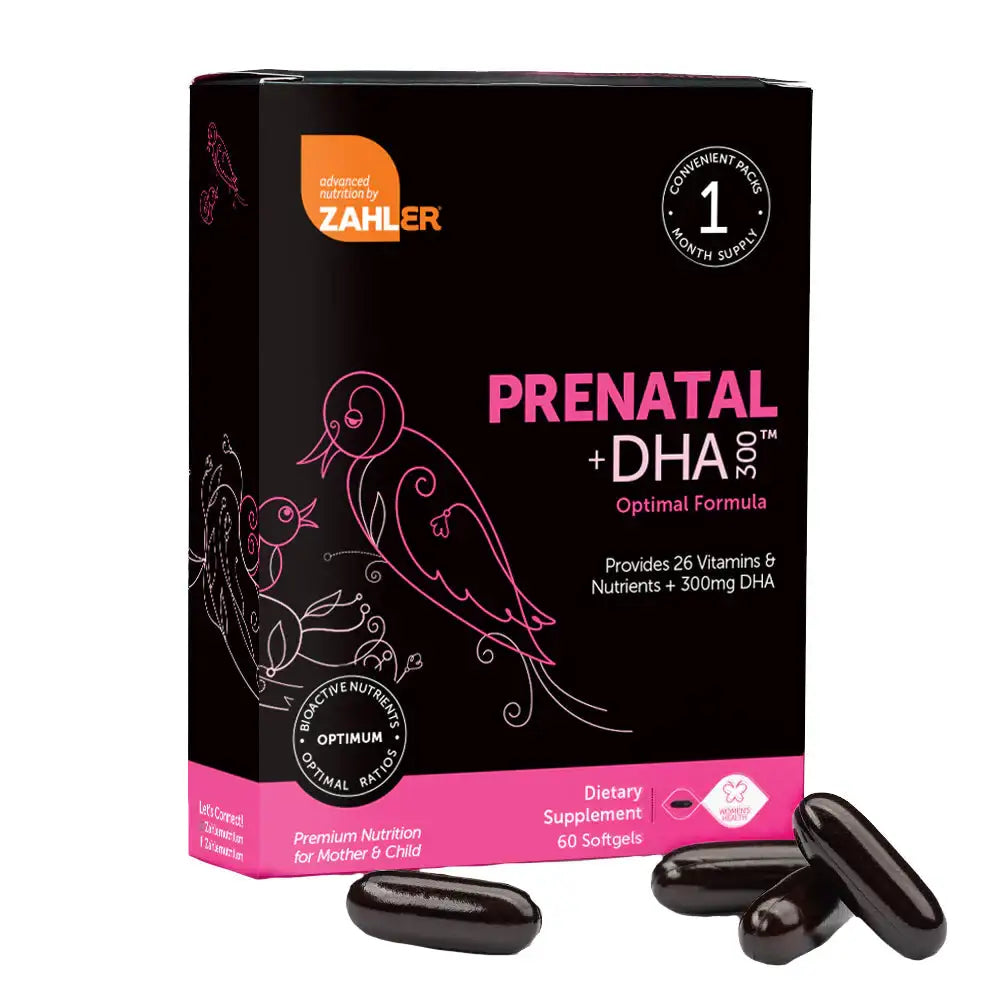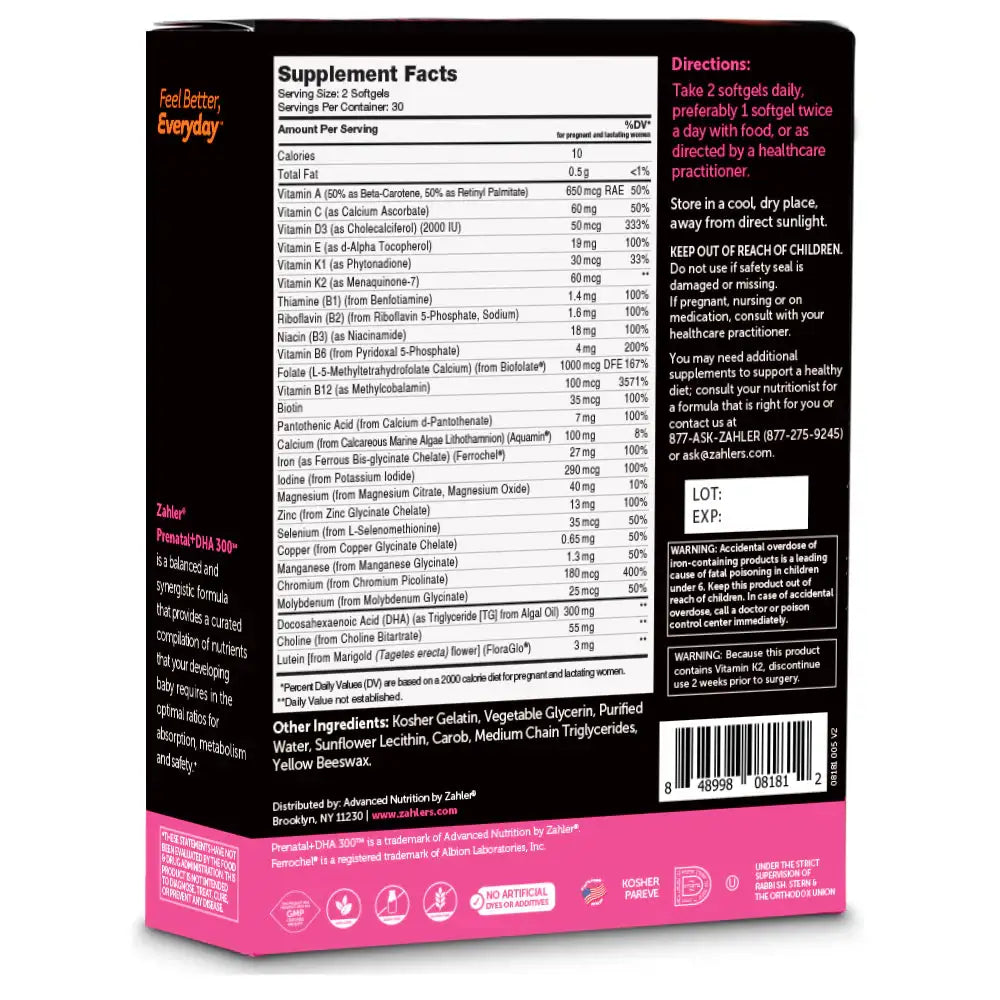How To Qualify For HSA/FSA Reimbursement:

Shop By Health Needs
Shop categories energy, sleep, or heart health, and choose products that match your unique health needs. Look For the HSA/FSA Badge!

Complete Free Health Assessment After Checkout
Take a quick online assessment found on your order confirmation page to determine the medical necessity of your purchased items.

Receive LMN
Once approved, our licensed medical staff will issue your Free Letter of Medical Necessity within 24 hours, qualifying your purchase for reimbursement through your HSA/FSA provider.
About Prenatal Vitamins For Mom & Baby with HSA/FSA Options
Pregnancy is a special time when both the mother and the growing baby need extra care. The body needs more nutrients than usual, and it can be hard to get everything from food alone. That’s where prenatal vitamins come in. They act like a safety net, making sure mom and baby get the important vitamins and minerals needed for healthy growth and development. This also lowers the chance of health problems during pregnancy.
Medpaid, a trusted marketplace with doctor‑reviewed products, makes it easier for parents by offering prenatal vitamins that are HSA/FSA‑eligible. This means families can use tax‑free savings to buy these important supplements. In this guide, we’ll look at why prenatal vitamins are so important, which nutrients to watch for, and how brands like Zaytun and Zahler in Medpaid’s prenatal collection can support a healthy pregnancy.
Why Prenatal Vitamins Are Important?
- Extra nutrients: During pregnancy, the baby depends completely on the mother for vitamins and minerals. Even with a healthy diet, it can be hard to get enough, especially if morning sickness or food dislikes make eating tough. Prenatal vitamins fill in these gaps.
- Healthy development: Prenatal vitamins help the baby’s brain and spine grow properly and lower the chance of birth defects. They also give back nutrients the mother’s body uses and help keep her immune system strong.
- Avoiding problems: Getting enough of the right nutrients can help prevent issues like anemia and preeclampsia. For example, iron helps the body make more blood during pregnancy and stops iron‑deficiency anemia.
- Saving money: Normally, vitamins can’t be bought with HSA or FSA funds, but prenatal vitamins are an exception because they are proven to prevent birth defects and support baby’s growth. Medpaid points out this benefit so parents can use pre‑tax dollars to buy high‑quality prenatal supplements.
Key Nutrients in Prenatal Vitamins
|
Nutrient |
Why It Matters in Pregnancy |
How Much You Need |
|
Folic acid (folate) |
Helps prevent birth defects of the brain and spine. |
400-800 mcg daily. Start before pregnancy and continue through the first trimester. |
|
Iron |
Makes blood, carries oxygen, prevents anemia. |
27 mg per day |
|
Calcium |
Builds bones & teeth, prevents bone loss in mother. |
1,000 mg per day |
|
Vitamin D |
Helps absorb calcium, supports immunity. |
600 IU per day (supplement recommended in UK) |
|
DHA (Omega-3) |
Supports brain & eye development. |
Often included in prenatal vitamins |
|
Iodine |
Supports thyroid health & baby’s brain growth. |
220 mcg per day |
|
Vitamin B12 |
Works with folate for brain development; prevents anemia. |
2.6 mcg per day |
|
Vitamin C |
Boosts immunity, helps absorb iron. |
85 mg per day |
|
Zinc & Choline |
Zinc aids cell growth; choline supports brain development. |
11 mg zinc, 450 mg choline daily |
Start Early
Doctors suggest starting prenatal vitamins at least three months before trying to get pregnant and continuing through the whole pregnancy. Since many pregnancies aren’t planned, women of child‑bearing age should take folic acid regularly. If you find out you’re pregnant and haven’t started a prenatal vitamin yet, begin as soon as you can.
HSA/FSA Eligibility - Medpaid’s Advantage
Most regular multivitamins can’t be bought with HSA or FSA funds. Prenatal vitamins are different; they are covered because they help prevent birth defects and support the baby’s growth. Medpaid focuses on these eligible products, so parents can use pre‑tax savings to buy quality prenatal supplements. Medpaid’s blog on what makes vitamins FSA‑eligible and gives step‑by‑step help on getting reimbursed with HSA or FSA.
Spotlight on Halal Prenatal Care - Zaytun Vitamins
Zaytun Vitamins produces halal-certified supplements that follow Islamic dietary guidelines while offering comprehensive prenatal support. Their Halal Prenatal Vitamins + DHA & Ginger offer:
-
Complete formula: Includes DHA, folic acid, iron, biotin, and choline to support every stage of pregnancy.
-
Healthy support: Promotes mom’s wellness and helps the baby’s brain and eyes grow strong.
-
Halal and made in the USA: 100% halal‑certified and made in the United States. They also sell a three‑pack for a longer supply.
- Soothing ingredients: Ginger helps ease pregnancy nausea, and the softgels are easy to swallow.
Besides prenatal care, Zaytun’s collection on Medpaid includes other halal supplements for overall wellness. You can also check Medpaid’s blog on using HSA/FSA for supplements to save money while getting the care you need.
Spotlight on Zahler - Prenatal Formulas Made with Science
Zahler is a family-owned company that has been making vitamins for three generations. They are known for creating formulas based on science. One of their most popular products is the Prenatal +DHA 300 softgels. Here’s what makes them special:
-
Full support: Combines 26 vitamins and nutrients with 300 mg of DHA to help both mom and baby. DHA is important for the baby’s brain, nerves, and eyesight.
Better folate: Contains 1,000 mcg of Biofolate® (a form of folate that the body can use right away). This avoids problems linked with regular synthetic folic acid.
-
Easy to swallow: The softgels are simple to take and also include vitamin K, lutein, chromium, and other important nutrients.
Safe and balanced: Designed so the body can absorb the nutrients well and stay safe.
-
High quality: Made with natural ingredients that meet strict health standards.
Medpaid offers Zahler’s full line of prenatal products, including the Prenatal +DHA 300, Chapter Six Prenatal Gummies for those who like gummies, the one-a-day Total One Prenatal, and the smaller Mighty Mini Prenatal.
This way, moms can choose the type that works best for them.
What makes Zahler formulas special?
Zahler creates vitamins using science to make sure they really work. They use Biofolate® (a form of folate that the body can use right away). This is especially important for women who have a gene type called MTHFR, which makes it hard to use regular folic acid. Zahler also adds DHA, which is very important for a baby’s brain, vision, and motor skills.
Since many women don’t get enough DHA from food, Zahler makes sure it’s included. They also add chromium, which helps keep blood sugar at healthy levels during pregnancy. To learn more about Zahler’s focus on science and quality, you can visit Medpaid’s Zahler brand page or read their blog on how science supports wellness.
How to Pick the Right Prenatal Vitamin?
Choosing a prenatal vitamin isn’t just about the most popular brand. Here are some simple tips:
-
Ask your doctor: They can recommend a vitamin that fits your health, diet, and other supplements.
-
Check the nutrients: Make sure it has the key vitamins and minerals you need. Zaytun and Zahler list their nutrients clearly, and Medpaid shows full nutrition panels.
-
Think about the form: Prenatals come in pills, softgels, gummies, and liquids. Zahler’s Mighty Mini softgels and Chapter Six gummies are great if you don’t like big pills.
-
See if it has DHA: If your prenatal doesn’t include DHA, you may need to add it separately. Zaytun includes DHA, and Zahler offers a high-DHA option too.
-
Pay attention to iron: If iron makes your stomach upset, look for a lower-dose or slow-release type. Gummies usually have less iron, so you may need an extra iron supplement.
-
Look for special labels: If you need halal, gluten-free, or other dietary options, Medpaid’s filters and collections (like Everyday Wellness or Fuel Performance) can help you find the right one.
Broader Wellness and Education Resources
Prenatal care is just one part of staying healthy overall. Medpaid also offers collections that go beyond prenatal vitamins. For example, their Whole-Body Nutrition collection includes Thorne Basic Prenatal and other vitamins with folate, iron, and B12. On their general Wellness page, you can find doctor-approved products in many categories, all with clear HSA/FSA eligibility labels.
Medpaid also shares helpful blog posts like “Why You Need to Include Supplements in Your Diet” and “Maximizing Your HSA/FSA: The Top Supplements to Consider,” which explain how supplements can improve your health while helping you save money. They also provide simple guides on things like dependent-care FSA rules and HSA/FSA rollovers. Using these resources along with your prenatal search can help you make smart choices.
Conclusion
Prenatal vitamins are an important part of a healthy pregnancy. They give moms and babies the nutrients needed for growth and wellness, fill in gaps in the diet, and help lower the risk of problems during pregnancy. Medpaid makes it easier to find trusted prenatal supplements by offering HSA/FSA-eligible options from reliable brands like Zaytun and Zahler.
They also share educational resources about nutrition and how to use tax-advantaged health savings. Whether you need halal-certified vitamins or science-based options with folate and DHA, Medpaid’s collections and detailed product pages help you shop with confidence.



